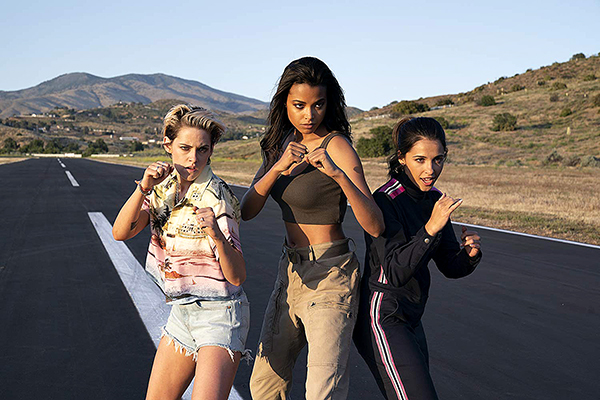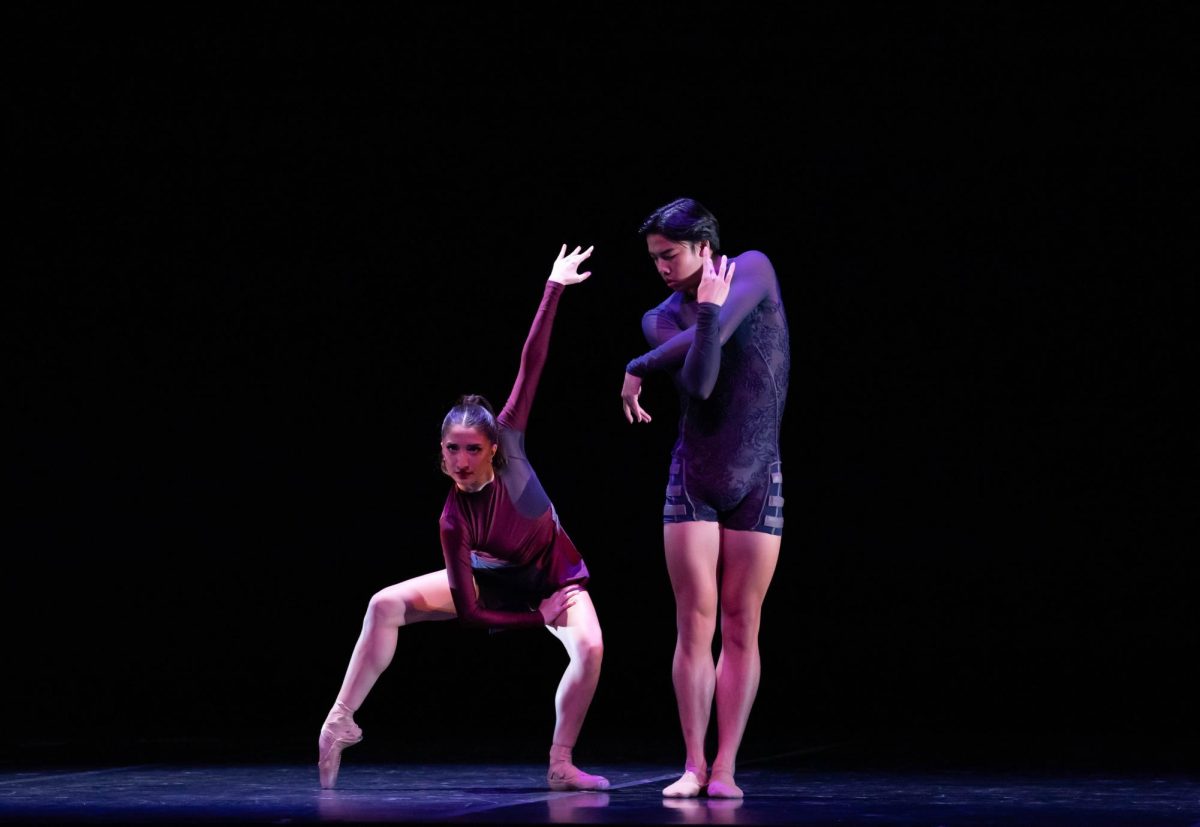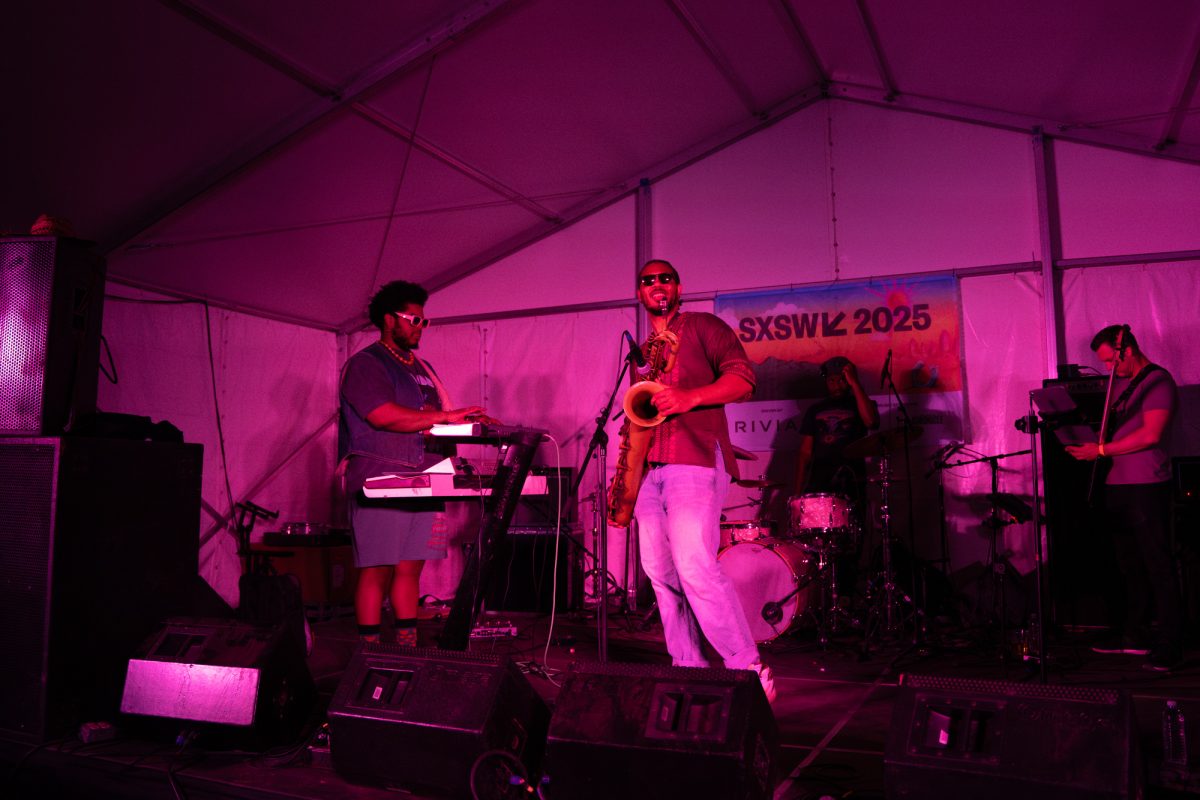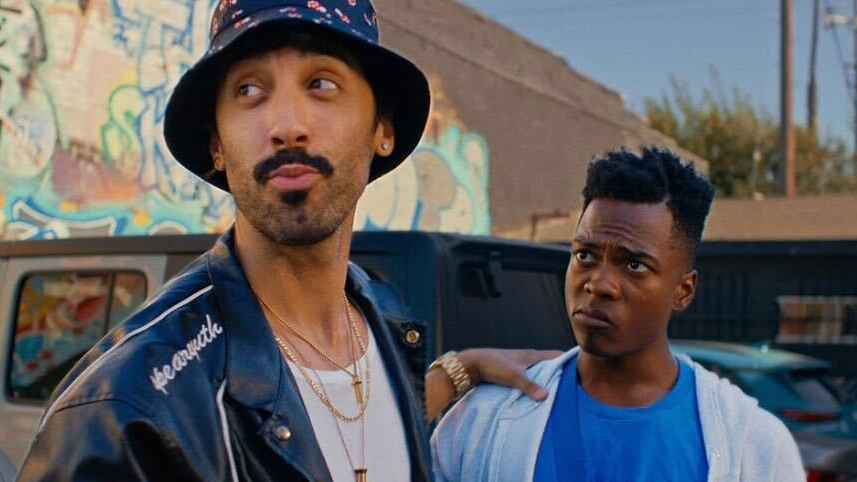The fearless new generation of Charlie’s Angels is taking flight, and they’re willing to put their lives on the line to protect innocent people.
The “Charlie’s Angels” screenplay, written, produced and directed by Elizabeth Banks, puts a modern twist on the classic story by Ivan Goff and Ben Roberts. Banks also stars as the first female Bosley in Angels history, and her bold reboot of the series screams two words: girl power.
From the original Angels — the late Farrah Fawcett, Cheryl Ladd, Kate Jackson and Jaclyn Smith —to the 2000s film stars Lucy Liu, Cameron Diaz and Drew Barrymore, who is an executive producer of the 2019 reboot, the super spies have become feminist icons, leaving the new stars with big shoes to fill.
After discovering the new technology she’s created can be weaponized, young systems engineer Elena Houghlin (Naomi Scott) tries to halt its production. She narrowly escapes an assassination attempt by her employer, Alexander Brock (Sam Claflin), and Charlie’s Angels are called into action to retreive the technology before it falls into the wrong hands.
In Banks’ bold vision, Angels Sabina Wilson and Jane Kano are brought to life by powerhouse actresses Kristen Stewart and Ella Balinksa. Sabina, Jane and Bosley (Elizabeth Banks) operate under the mysterious Charles Townsend’s security and intelligence agency. When things go awry, they decide to work undercover to protect their new private client, Elena.
The film’s scenes are filled with intense action. After an opening montage of the young women engaging in activities such as archery, biking and running, the film’s purpose becomes undeniable. Empowering women comes first in Banks’ agenda, executed through the 40-year-old legacy of female super spies.
Unfortunately, carrying on a legacy makes the film’s structure predictable. The repetitive plot formula follows the steps. First, it develops the characters then moves on to montages of the Angels preparing to fight. The fight scenes go above and beyond to showcase the Angels’ strength, tenacity and wit.
Another interesting emotional ploy the film uses to draw in viewers is children. As Elena and the Angels travel the world to take down Brock and his assistants, there is an occasional lull between the blood, sweat and tears. Banks uses this as an opportunity to engage the maternal instincts of the female leads. These come in the form of lighthearted interactions, such as when Elena, Sabina and Jane find themselves on a ferry in Istanbul. A young girl asks why they look so tired, and Sabina ends up letting her sit with them.
Just as the film opens with a women-powered montage, it closes with another. It is a whirlwind of famous women, including cameos from Ronda Rousey, Danica Patrick and Laverne Cox, who teach Elena how to fight, drive and defuse bombs while she undergoes Angel recruitment. In an homage to the original Charlie’s Angels cast, Elena finally receives her wings under the guidance of Kelly Garrett (Jaclyn Smith).
Overall, the traditional rising action followed by instantly gratifying fight sequences can taste a bit stale after the third, fourth or fifth time. Despite the repetition, viewers can expect to leave the theatre feeling inspired, in awe of women and ready to take a kickboxing class.
Score: 3.5 angel wings out of 5





















